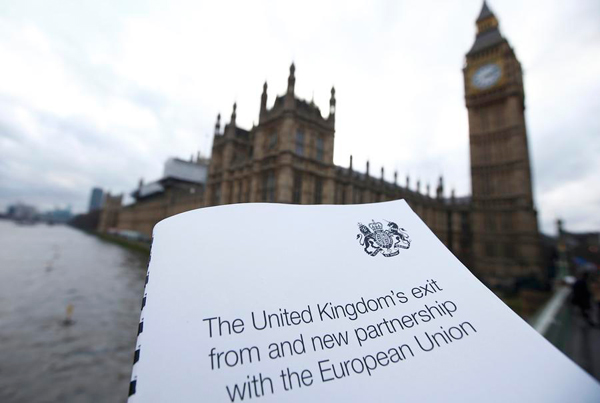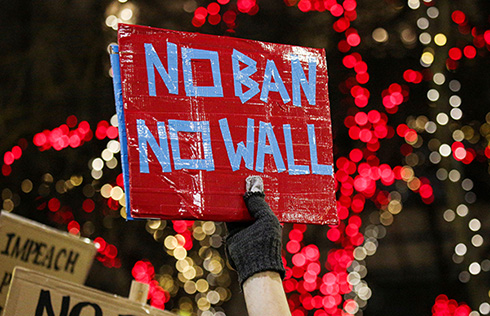UK publishes Brexit White Paper
The British government published an official policy document setting out its plans to bring the UK out of the European Union on Thursday.
|
 |
|
An illustration shows the white paper setting out Britain's government strategy for departing the European Union, outside Parliament, in London, Britain February 2, 2017.??[Photo/Agencies] |
The White Paper, which detailed 12 principles including immigration control and trade arrangements, is in line with Prime Minister Theresa May’s vision of "an independent, truly global UK and an ambitious future relationship with the EU".
Secretary of State for Exiting the European Union David Davis said the 12 principles amounted to one goal: "a new, positive and constructive partnership between Britain and the European Union that works in our mutual interest".
The 12 principles include an objective to "forge ambitious free trade agreements with other countries across the world".
Such potential free trade agreement is expected between China and the UK.
The UK has also vowed to ensure free trade with European markets, by "forging a new strategic partnership with the EU including a bold and ambitious free trade agreement and mutually beneficial new customs agreement", said Davis, in his speech at the House of Commons during the White Paper's publication.
The White Paper also outlined details covering immigration, legal system, the movement of population and use of public funds, among others.
On immigration, a new system to control EU migration will be introduced, and could be phased in to give businesses time to prepare. The new system will be designed to help fill skills shortages and welcome "genuine" students.
The UK government said it would seek to secure an agreement with European countries “at the earliest opportunity” on the rights of EU nationals in the UK and Britons living in Europe.
The UK will leave the jurisdiction of the European Court of Justice, and seek to set up separate resolution mechanisms for trade disputes.
The UK is also aiming for "seamless and frictionless" borders with Northern Ireland and Ireland, while devolving more powers to Scotland, Wales and Northern Ireland.
On the issue of how taxpayers' money will be spent will be made in the UK after Brexit. As the UK is no longer a member of the European Single Market, it will not be required to make contributions to the EU budget.

























